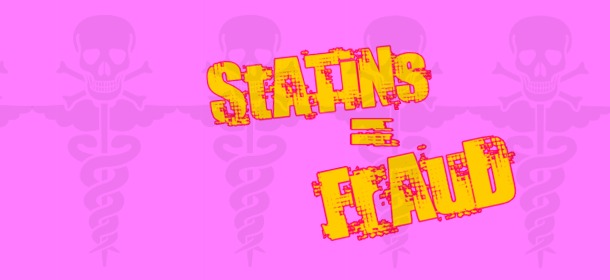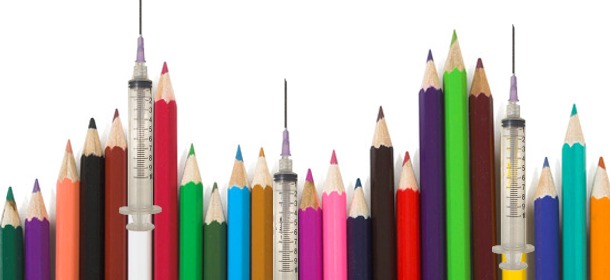Featured
Salt: Nature’s Antidepressant, Not a Health Hazard
by Heidi Stevenson
Much-demonized salt is nature’s antidepressant. With the drive to demonize salt and press people into taking less of it, is it any wonder that antidepressant drugs are so heavily used?

A Bit of Salt History
Salt is an ingrained part of culture and language. The phrase, salt of the earth, indicates an unpretentious person, the sort who is solid and reliable. The root of the term salary comes from salt. Roman soldiers were sometimes paid in it. Salt is known to have been traded by people back in the days when we lived in caves. In some cultures, displaying salt is a matter of etiquette, to indicate hospitality.
We need salt for life. Our blood is salty, about the same percentage as the ocean. Yet, salt is demonized today. Governments are pushing salt reduction heavily, but the reality is that there’s little truth behind the claims that salt is dangerous.
A Bit of Salt’s Research History
The salt myth built for quite some time, based on the fact that people with severe edema—the sort often found in people with end-stage kidney or heart disease—can decrease their related high blood pressure and the edema with severe salt restriction.
The myth of salt being dangerous began in earnest in the 1960s when Lewis Dahl of Brookhaven National Laboratory set out to prove it is. He raised a strain of mice to be particularly sensitive to salt, and fed them the human equivalent of a pound (half kilogram) of sodium a day, and then built a career on the basis that they developed high blood pressure. Instead of laughing him off the podium, his work was taken as gospel, and the rush to “prove” salt’s harmful effects had begun .
The INTERSALT study was the first major effort. It was acclaimed for its “proof” that high salt intake is dangerous. However, later analyses of the same data showed that the authors had badly misanalyzed it. There was nothing there to show that salt is harmful for most people.
Recently, a study was published in the Cochrane Library showing that, in spite of the expectations of the authors, high salt intake could not be linked to heart disease. Shortly before that was published, the Journal of the American Medical Association carried a study that documented a quadrupling in heart disease death rates with low salt intake!
A Bit of Salt’s Benefits
Salt is necessary for good health. Unless you’re obese, your health will probably improve if you eat the amount of salt you want, rather than avoiding it. Your body quite naturally maintains the proper salt level, unless you don’t eat enough of it. For most of us, the only time the kidneys will have trouble managing salt is when they’re damaged, as with congestive heart failure or kidney disease. After all, salt isn’t a toxin that needs to be detoxed. It’s a required nutrient that the kidneys quite readily balance.
Salt is comprised of two elements, sodium and chloride. Both are necessary for maintaining health:
- Sodium is the most significant extracellular electrolyte. It regulates water balance in the body, pH, and osmotic pressure. Sodium also helps nutrient absorption in the gut, and is necessary for good muscle contraction, heartbeat, and nerve impulses.
- Chloride is necessary to preserve the acid-base balance in the body—the single most important balancing act of the system. It takes precedence over every other bodily function when it’s out of balance. Chloride also help carry carbon dioxide out of the lungs, helps potassium absorption, and is a critical part of stomach acid—the -chloric of hydrochloric acid, required to break food down into absorbable nutrients.
Here’s a bit of what salt does for you:
- Critical for digesting food.
- Helps carry nutrients into cells.
- Helps remove toxins from cells.
- Helps maintain blood pressure.
- Helps you to think better by increasing glial brain cells.
- Helps transmit nerve impulses.
- Helps with contraction and relaxation of muscles.
- Helps keep the right fluid balance in your body.
- Helps improve your mood—a natural antidepressant!
A Bit of Mood Elevation
Finally, of course, salt is a mood elevator—and it’s completely natural. A study done by the University of Iowa has documented that rats deprived of adequate salt sink into depression. They don’t do the things they normally would, the things that give them pleasure. They lose energy and appetite for life. Rats that have been taught to use a pleasure bar, a device wired to their brains to give an automatic pleasure high, lose interest in it. It’s the epitome of depression, the loss of interest in things that normally bring pleasure.
The researchers have, of course, couched the topic of salt as an antidepressant within terminology that’s accepted in our salt-intolerant medical system. They discussed it as though modern humans crave more salt than needed because of overuse, and imply that we require more salt than needed to get the antidepressant effect because of that overuse. They don’t, though, back that up. It appears to be a ruse, a means of getting research accepted without ruffling too many feathers.
A Wee Bit of Advice on Type of Salt to Eat
Salt isn’t all equal. Processed and purified salts, though better than avoiding salt—unless the salt has additives, like fluoride—are not ideal. You also need trace nutrients, and salt can be one of the best sources. Unprocessed sea salt is one of the better salts. However, even the ocean is polluted today. So the best type of salt is usually Himalayan, or other salt that was formed at the bottom of an ancient sea bed. You’ll get the salt you need, along with relatively unpolluted trace nutrients.
Antidepressants don’t elevate a person’s mood. They blunt emotions, effectively putting up a wall between you and your emotions. Salt isn’t a drug. Your body needs it to maintain health. And claims that too much salt is bad for you are based on deeply flawed research. Doesn’t being naturally happy sound ever so much better than taking an antidepressant that blunts your ability to feel?
Tagged conventional medicine, modern medicine, natural health, salt antidepressant, salt bad research, salt culture, salt health, salt history














Pingback: Salt antidepressant | Luxrewards